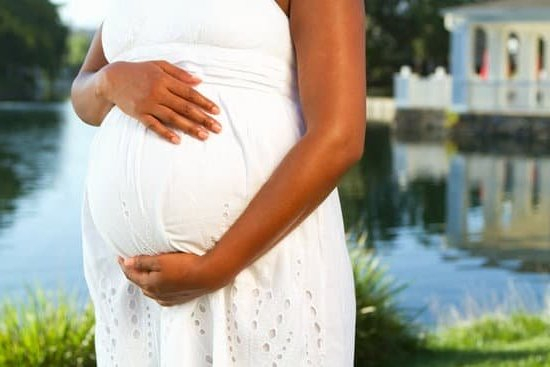Early pregnancy can be an exciting and nerve-wracking time for many women, especially as they experience various symptoms and changes in their bodies. One common concern that often arises during this period is cramping. In this article, we will delve into the topic of early pregnancy cramping, focusing on how long it lasts and what you need to know about it.
For many expectant mothers, the question of how long does cramping last in early pregnancy may be a cause for worry. Understanding the nature of these cramps and knowing what to expect can help alleviate anxiety and provide reassurance during this crucial stage of pregnancy.
During the early stages of pregnancy, women may experience cramps that can be concerning or unfamiliar. We will explore the signs and symptoms to look out for when identifying early pregnancy cramps, as well as common causes that may contribute to this discomfort. Additionally, we will provide a week-by-week guide on how long cramping typically lasts in early pregnancy, offering insight into the normal progression of this symptom.
Identifying Early Pregnancy Cramps
Many women experience cramping in early pregnancy, and it is important to be able to identify the signs and symptoms to look out for. Early pregnancy cramps can often be mistaken for menstrual cramps, but there are some key differences to be aware of. Understanding these signs can help alleviate anxiety and ensure a healthy pregnancy.
Common Signs of Early Pregnancy Cramps
Early pregnancy cramps may feel similar to those experienced during menstruation, but they can also come with some distinct characteristics. Women often describe early pregnancy cramps as milder than menstrual cramps, and they may also come with other symptoms such as bloating, spotting, or a feeling of fullness in the lower abdomen.
When to Pay Attention
It’s important to pay attention to the intensity and duration of the cramping. While mild twinges are normal in early pregnancy, severe or persistent cramping may be cause for concern. If the cramping is accompanied by heavy bleeding, dizziness, or shoulder pain, it is essential to seek medical attention immediately.
Tracking Symptoms
Keeping a record of when the cramping occurs can provide valuable information when seeking medical advice. Take note of how long the cramping lasts, the severity of the pain, and any additional symptoms that accompany it. This information will help healthcare professionals assess whether your cramping is within normal limits or requires further investigation.
Common Causes of Cramping in Early Pregnancy
Cramping in early pregnancy can be a cause for concern for many expectant mothers. It is important to understand the common causes of cramping during this delicate stage of pregnancy in order to alleviate any worries or anxieties. Many women experience cramping in the first trimester, and knowing what to expect can help ease any uncertainties.
One common cause of cramping in early pregnancy is implantation. This occurs when the fertilized egg attaches itself to the lining of the uterus, which can result in mild cramping and spotting. This typically happens around 10 to 14 days after conception, so it is important to be aware of this possibility during the early stages of pregnancy.
Another common cause of cramping in early pregnancy is the stretching and growing of the uterus. As the uterus expands to accommodate the developing fetus, it can cause discomfort and mild cramping. This process typically occurs throughout the first trimester as the body adjusts to the changes of pregnancy.
Additionally, hormonal changes can also contribute to cramping in early pregnancy. The increase in progesterone levels can lead to uterine contractions and mild cramping. It’s important for expectant mothers to understand that these hormonal changes are a normal part of early pregnancy and can contribute to temporary discomfort.
| Common Causes | Details |
|---|---|
| Implantation | The fertilized egg attaching itself to the lining of the uterus, occurring around 10-14 days after conception |
| Uterus Growth | The stretching and expanding of the uterus to accommodate the developing fetus throughout the first trimester |
| Hormonal Changes | The increase in progesterone levels leading to uterine contractions and mild cramping as a normal part of early pregnancy |
How Long Does Cramping Last in Early Pregnancy
Early pregnancy cramping can be a source of anxiety for many expectant mothers, as it is often difficult to discern whether the cramps are a normal part of pregnancy or if they are a cause for concern. Understanding how long cramping lasts in early pregnancy can provide valuable reassurance and peace of mind.
During the first week of pregnancy, cramping may occur due to the fertilized egg implanting itself into the lining of the uterus. This is known as implantation cramping and typically lasts for one to three days. It is often milder than menstrual cramps and may be accompanied by light spotting.
In the second week of pregnancy, as your body begins to produce more progesterone and hCG (human chorionic gonadotropin) levels rise, you may continue to experience mild cramping on and off. These cramps could last for several days but should not be severe or accompanied by heavy bleeding. It’s important to take note of any changes in the intensity or duration of cramping and consult your healthcare provider if you have any concerns.
| Week of Pregnancy | Duration of Cramping |
|---|---|
| 1 | 1-3 days |
| 2 | Several days on and off |
When to Worry
Signs of Concern
While it is common to experience some degree of cramping during early pregnancy, there are certain signs to watch out for that may indicate a more serious issue. If you experience severe or persistent cramping, especially if it is accompanied by heavy bleeding, fever, chills, dizziness, or fainting, it is important to seek medical attention immediately. These symptoms could be indicative of an ectopic pregnancy, miscarriage, or other complications that require prompt medical intervention.
Unusual Cramping Patterns
In addition to the intensity of the cramping, the pattern and location of the cramps can also provide insight into whether they may be cause for concern. If you notice one-sided cramping or pain that is concentrated on one side of your abdomen, along with shoulder pain and vaginal bleeding, this may be a sign of an ectopic pregnancy and should be addressed by a healthcare professional as soon as possible.
Previous Pregnancy Complications
Women who have experienced previous pregnancy complications such as miscarriage or ectopic pregnancy may need to be particularly vigilant about monitoring their cramping symptoms. If you have a history of such complications and are experiencing cramping during early pregnancy, it is advisable to consult with your doctor to rule out any potential concerns and ensure the health and safety of your current pregnancy.
Tips for Managing and Alleviating Cramping Discomfort in Early Pregnancy
During early pregnancy, it’s common for women to experience cramping. This discomfort can be worrying, but there are several ways to manage and alleviate these symptoms. Here are some tips to help you deal with cramping during the early stages of pregnancy:
- Stay hydrated: Dehydration can exacerbate cramping, so it’s important to drink plenty of water throughout the day.
- Rest: Getting enough rest and avoiding strenuous activities can help ease cramping.
- Warm baths: Taking a warm bath or using a heating pad on low heat can provide relief from cramps.
- Gentle exercise: Engaging in gentle exercises, such as prenatal yoga or walking, can help alleviate cramping while also promoting overall well-being.
- Eat small meals: Eating small, frequent meals throughout the day can help stabilize blood sugar levels, which may reduce the likelihood of experiencing cramps.
It’s important to consult with your healthcare provider before taking any medication or supplement to alleviate cramping during pregnancy. They can provide guidance on safe options for managing discomfort.
Remember that every pregnancy is different, and what works for one person may not work for another. It’s essential to listen to your body and seek professional advice if you have any concerns about managing early pregnancy cramping.
Overall, finding ways to relax and take care of yourself is crucial during this time. Don’t hesitate to reach out for support from loved ones or healthcare professionals if you’re feeling overwhelmed by the discomfort of early pregnancy cramping.
Seeking Medical Advice
If you are experiencing cramping during early pregnancy, it is important to know when to seek medical advice. While mild cramping can be common and normal in early pregnancy, there are certain signs and symptoms that warrant a visit to a healthcare professional.
Here are some instances when you should consider consulting a doctor or midwife:
- If the cramping is severe and accompanied by heavy bleeding
- If the cramping is persistent and does not subside after a few days
- If the cramping is localized on one side of the abdomen, which could be a sign of an ectopic pregnancy
It’s essential to trust your instincts and seek medical help if you feel that something is not right. Your healthcare provider can perform an evaluation to determine the cause of the cramping and provide necessary guidance or treatment.
Remember that every pregnancy is different, so it’s always better to err on the side of caution and seek professional advice if you have any concerns about your cramping.
Lastly, if you have a history of miscarriage or other complications in previous pregnancies, it may be advisable to consult your healthcare provider even for milder cases of cramping. It’s important to take proactive steps in ensuring the health and well-being of both you and your baby.
Real-Life Experiences
As we have learned from the real-life experiences of moms who have been through early pregnancy cramping, it is clear that every woman’s experience is unique. Some women reported only mild cramps that lasted a few days, while others experienced more intense cramping for a week or longer. This goes to show that there is no one-size-fits-all answer to the question “how long does cramping last in early pregnancy“.
These personal accounts highlight the importance of paying close attention to your own body and seeking medical advice if you are unsure about the symptoms you are experiencing. While cramping can be a normal part of early pregnancy due to changes in the uterus and hormonal fluctuations, it is crucial to be aware of any warning signs that could indicate a more serious issue.
In conclusion, if you are experiencing cramping in early pregnancy, it is essential to stay informed about the potential causes and duration of this discomfort. By understanding what is considered normal and when to seek medical advice, you can navigate this aspect of pregnancy with greater confidence and peace of mind. Remember, everyone’s experience is different, so don’t hesitate to reach out for support and guidance if you have any concerns about your symptoms.
Frequently Asked Questions
How Many Days Should Early Pregnancy Cramps Last?
Early pregnancy cramps can last for a few days to a couple of weeks. It is usually caused by the implantation process, as well as the stretching and growing of the uterus.
How Do I Know if My Cramping Is Normal in Early Pregnancy?
Normal cramping in early pregnancy is typically mild to moderate in intensity. It may feel similar to menstrual cramps and should not be accompanied by heavy bleeding. Consulting with a healthcare provider is always recommended to confirm normalcy.
Is Cramping Normal at 5 Weeks Pregnant?
Cramping at 5 weeks pregnant is considered normal as it is often associated with the changes happening in the uterus as it prepares for the baby’s development. However, if the cramping becomes severe or is accompanied by heavy bleeding, medical attention should be sought out immediately.

Welcome to my fertility blog. This is a space where I will be sharing my experiences as I navigate through the world of fertility treatments, as well as provide information and resources about fertility and pregnancy.





